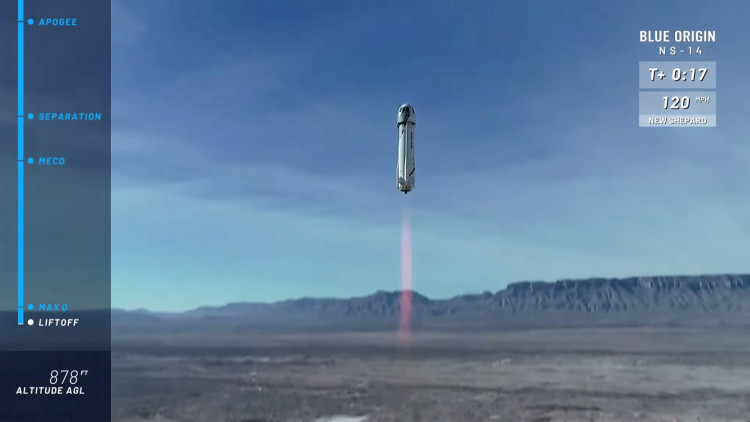Jeff Bezos' private space tourism company Blue Origin aims to send its first passenger into the edge of space as early as April this year. The company announced the ambitious goal after it completed the fourteenth test flight of its New Shepard rocket and capsule Thursday.
The rocket prototype called the NS-14 successfully flew and landed using the company's newly developed booster and upgraded capsule. The test flight is the last remaining step before the company moves forward to launching a manned rocket.
Sources familiar with the company's plans said that the last test flights were labeled as "stable configuration" flights. This means that the company does not want to make any major changes to the vehicle, which is good news for the program.
Top executives are reportedly aiming to perform a launch every six weeks. This is an ambitious goal for the company, which had experienced several delays and a nine-month hiatus due to the pandemic.
The next test flight, called NS-15, will involve loading and unloading actual crew members in and out of the spacecraft. If the company is able to stick to its schedule, that flight could take place sometime in April at the earliest.
Blue Origin's New Shepard spacecraft is designed to carry passengers to the edge of space - or more than 340,000 feet above sea level. Passengers on board will be able to experience several minutes of zero gravity before the vessel returns back to Earth.
Similar to SpaceX's rockets, New Sheperd is designed to be fully reusable. The boosters are designed to land vertically, while the capsule will land using a set of parachutes.
Bezos founded Blue Origin in 2000 primarily as a space tourism company. The company now has more than 3,500 employees and 14 successful launches under its belt. The company has landed its boosters 13 consecutive times. NASA and other customers have used the company's boosters to fly microgravity research missions.
Bezos personally funds the company through the selling of his stock in Amazon. He previously said that he sells about $1 billion worth of Amazon stocks each year to keep the company running.






